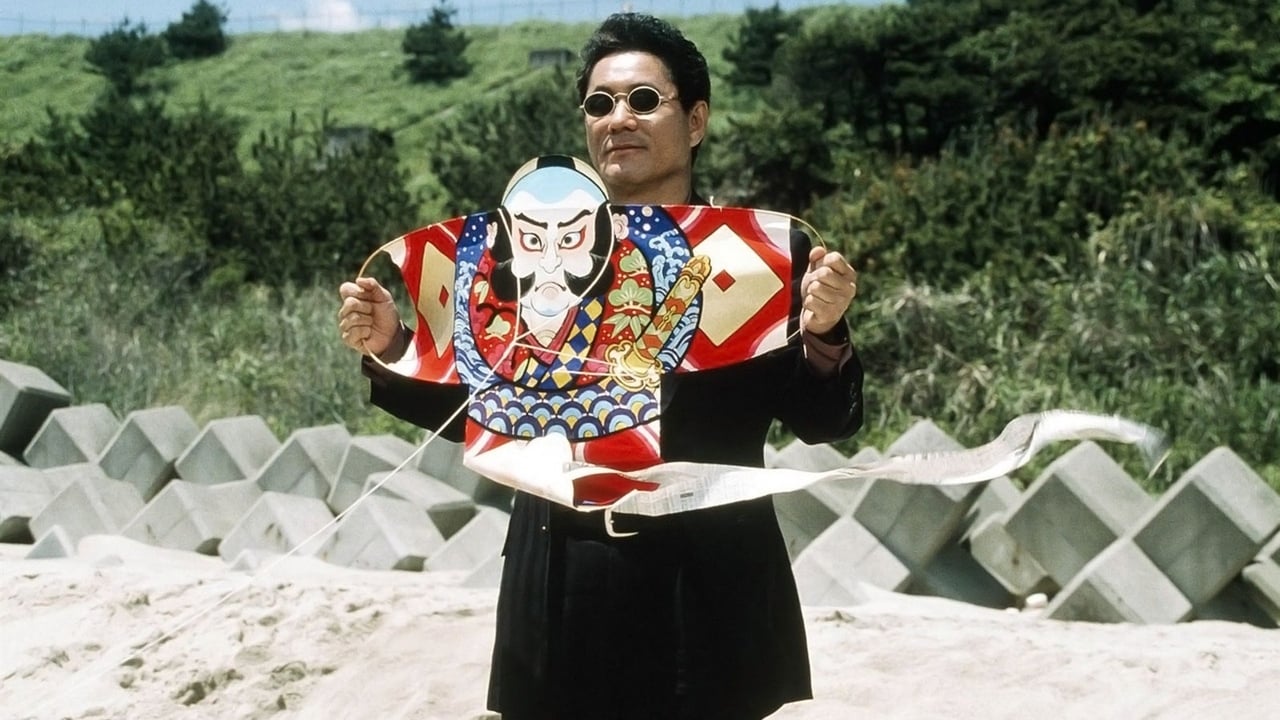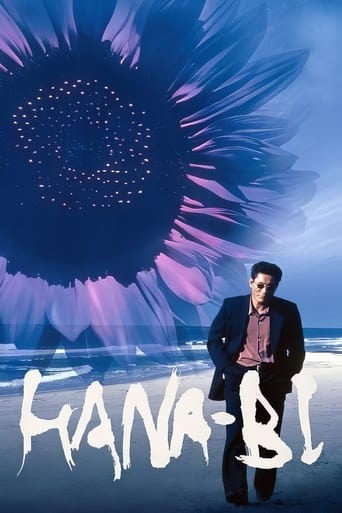

The greatest movie ever made..!
... View Moregood back-story, and good acting
... View MoreIt's fun, it's light, [but] it has a hard time when its tries to get heavy.
... View MoreYes, absolutely, there is fun to be had, as well as many, many things to go boom, all amid an atmospheric urban jungle.
... View MoreA very likeable film. I must have first seen it on video and then caught up with most of those he made before it and some after. In many ways a gentle and amusing film with a great big heart but there are still those moments of horrendous, sudden and terrifying violence. As he takes his wife on the final trip there are flash backs to the most violent of acts that more or less ended his involvement in the police but there is more violence to come as events catch up. Beautifully directed with measured and breathtaking photography and complex characterisation managed seemingly without effort. Takes is a multi faceted artist and has created some of the truly great films of the last twenty years and certainly some of the finest recent Japanese of which this is a marvellous example. So much of present day Japan is encapsulated within this modest film probably because it all seems to come so naturally to this unassuming oriental gentleman.
... View MoreTakeshi Kintano's visual masterpiece is nothing less than brilliant, blending a mixture of great editing, fantastic cinematography, a stunning visuals. Backed with the always great music of Joe Hisaishi who created my favourite soundtrack of all time for the film "Sonatine" (1993). Beat Takeshi take the lead play an ex-cop who wants to support his dying wife and give her a happy last memory. Takeshi plays the part more sensitively than his previous roles; throw in some great story telling and scenes full of the directors own paintings which themselves create a better understanding of the scenes, and you've got a genuine masterpiece. Some people may find the violence (which there's not too much of) a little too much for them but the ballet of colour and visuals should quell that.
... View MoreDetective Nishi is a deeply troubled man; his partner Horibe has been left paralyzed from the waist down after a botched stake-out, while his own wife Miyuki is diagnosed as having terminal cancer. Nishi resigns from the force and resolves to take Miyuki on a second honeymoon before her death. But the gangster loan sharks are soon on his tail.I can understand good things of this film. However,Hana-bi is received excessive estimation, this is not interesting for me at all. the theme is love of pair and friendship. it is not described deeply. I don't like the screen because it is always dim. There are funny scene for a change.But I love the music! the music is made by Jyou Hisaishi who is my favorite songwriter.
... View MoreTakeshi Kitano not only writes, acts in, directs and edits this meaningful fable, he also paints the artworks that are a strong element of the film. Kitano is supposedly known for his violence, but this movie has more to do about the repercussion of violence--and about life and death in general--than showing actual violent scenes. The violence is there, bursts of explosive violence, but it is short and strategically edited.Nishi, the protagonist, sees his partners die or get injured in the line of duty. One of them, Horibe, becomes wheel-chair-bound. His wife leaves him and he contemplates life and death staring at the horizon beyond the sea. He starts to paint to express himself and save himself from boredom and sorrow. Nishi, sick of his work leaves the police force to spend some time with his dying wife. The doctor just released her from the hospital and she does not have much time left...Kitano chooses to focus on the underlying emotions rather than dialogue as most of the scenes with his wife are silent. At first, this is unnerving, but slowly, as the movie progress, we understand that there is nothing left to stay.The score of the movie is its strongest point. Accomplished composer, Joe Hisaishi (who worked with Kitano on other projects as well as with Miyazaki's animated films) outdoes himself with poignant classical music that, unlike Nishi, speaks volume. He would win the Award of the Japanese Academy for this.Some good cinematography can also be observed at times. Kitano's paintings are interesting and vibrant. They add yet another level of complexity to this intriguing piece of film. All in all, a very well made film.
... View More